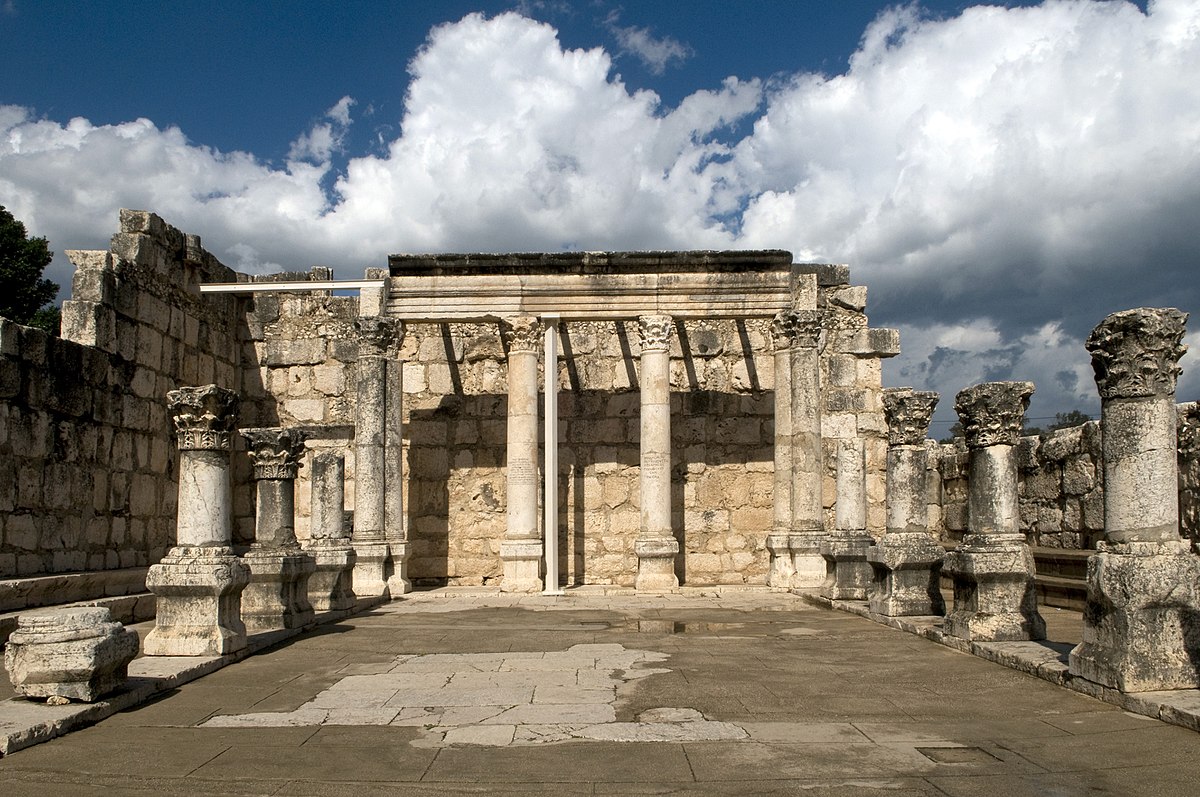By: Brian G. Chilton | April 29, 2019
Often, critical scholars make Jesus of Nazareth out to be a country bumpkin, one who was uneducated and unsophisticated. However, when one evaluates his life and teaching style, it appears that Jesus of Nazareth was a well-polished individual who spoke and taught with great authority and wisdom. The Jewish leaders marveled at Jesus, saying, “How is this man so learned, since he hasn’t been trained” (Jn. 7:14, CSB)? While this writer holds that Jesus was the divine Son of God, the human aspect of Jesus does not indicate that Jesus was an uneducated hillbilly, but rather one who had at least some formal education. The following are five reasons to believe that Jesus was a well educated man.
- Jesus could read. The Synoptic Gospels indicate that Jesus stood in the synagogue of Nazareth. Luke notes that Jesus “entered the synagogue on the Sabbath day and stood up to read” (Lk. 4:16, CSB). The text indicates that he read from the prophet Isaiah. In Jewish culture, Hebrew boys were expected to be able to read from the Scriptures. In Jesus’s case, it is clear that he had the ability to read which was better than 90% of the society at the time. The reading level for Jews was higher than the those of the Greco-Roman world due to the emphasis of schools in the synagogues, at least for boys.
- Jesus could write on some level. While John 7:53-8:11 is not found in the earliest manuscripts of John, it is generally accepted to be historically genuine since it has all the earmarks of the historical stories told of Jesus. What makes the passage of Scripture so fascinating is that on two occasions Jesus is said to have written something in the sand (Jn. 8:6, 8). The term used for Jesus’s writing does not indicate some abstract doodling, but the writing of words. Graphō is used of writing that is found in books and scrolls. According to Louw and Nida, “Since the knowledge of writing is almost universal, there is usually no difficulty in obtaining a satisfactory term for writing” (Louw & Nida, Greek-English Lexicon of the NT, 395).
- Jesus taught according to rabbinic styles. Jesus also used rabbinic styles of teaching. Jesus often answered questions by asking them. When the rich young ruler asked Jesus what he must do to inherit eternal life while calling Jesus good, Jesus responded by asking, “Why do you call me good” (Lk. 18:19, CSB)? In another case, Jesus is asked whether people should pay taxes. Jesus responds with the question after taking a denarius, “Whose image and inscriptions does it have” (Lk. 20:24)? Jesus also uses a rabbinical style of teaching called remez which alludes to a passage of Scripture. Remez is a haggadic method of interpretation. Since many people memorized the Scripture, it wasn’t necessary to quote the entire passage of Scripture. Rather, one could recall part of the Scripture or allude to the Scripture. When the allusion to the Scripture is given, the entire passage is referenced. When Jesus answers the disciples of John the Baptist as to whether he is the Messiah, Jesus replies by saying, “The blind receive their sight, the lame walk, those with leprosy are cleansed, the deaf hear, the dead are raised, and the poor are told the good news, and blessed is the one who isn’t offended by me” (Mt. 11:5). In this one statement, Jesus references Isaiah 29:18; 35:5-6; 42:7; and 61:1. John the Baptist would have understood Jesus’s citation (Blizzard and Bivin, BibleScholars.org, 2013). Not only does Jesus use extensive rabbinic techniques, Jesus uses tremendous methodologies of logic in his teaching as well as various picturesque expressions in his teaching, including similes (Mt. 7:24, 26), metaphors (Mt. 13:19-22), hypocatastates (comparison of two unlike things in naming, Lk. 13:32), metonymies (word or phrase is substituted for another word or phrase associated with it, Mt. 10:34; 11:21, 23), synecdoche (like metonymies but that this substitutes a part for a whole or vice versa, Lk. 23:29), hyperboles (exaggerations to prove a point, Mt. 5:29-30), personification (Mt. 6:3, 6:34, 11:2), apostrophes (addresses an object as if it were a person, Mt. 11:21, 23; Lk. 10:13), euphemisms (substitution of an inoffensive expression with a bold one, Mt. 9:24; Jn. 11:11), ironies (Mk. 2:17; Mk. 7:9), paradoxes (Mt. 5:2-5; Mt. 19:29; Mt. 23:11), puns (Lk. 21:11; Jn. 3:3), humor (Mt. 6:2; 7:3; 19:24), enigmas (Mt. 8:22; Mt. 10:34), aphorisms (Mt. 5:13-14; 6:34; Lk. 12:34), repetitions (“Blessed” in the Beatitudes; “I tell you” in Mt. 18:3, 10, 18-19, 22; 26:21, 29, 34), a fortiori (Mt. 6:26; 10:29-30), reductio ad absurdium (Mt. 5:46-47; 12:24-26), excluded middle (Mt. 12:30; 21:25-27), noncontradiction (Lk. 6:39) analogies (Mt. 12:40), contrasts (Mt. 23:23-24), and Hebrew forms of poetry (Mt. 10:24, 26) (Zuck, Teaching as Jesus Taught, 183-234). The high level of logic and reasoning in addition to his rabbinical style of teaching seems to preclude that Jesus of Nazareth was well educated.
- Jesus knew the Hebrew Bible well. This point does not need a lot of exposition. It is evident even upon a casual reading of the Gospels that Jesus knew the Scriptures well. He even segments the Scriptures into the classical way of segmenting them as the Law, the Prophets, and the Psalms (Lk. 24:44). Jesus quoted from Deuteronomy, Isaiah, the Psalms, and other prophets frequently indicating that he had memorized large segments of Scripture.
- Jesus lived in a region that had schools. Finally, it should be noted that according to Professor Shmuel Safrai, the number of Galilean rabbis eclipsed those of Judean rabbis in the first century (Safrai, Jewish People of the First Century). Archaeologists have uncovered synagogues in the Galilean area as found within the first century. Jesus would have received his education at the synagogues by the rabbis of the area in addition to his earthly father, Joseph of Nazareth. While not much is known about Joseph, if James, the half-brother of Jesus, is any indication, it would seem that Joseph would have been quite knowledgeable of the Scriptures himself as he would have passed along an education to Jesus and James.
When Jesus was called unlearned, it is most likely that the Jewish leaders noted that Jesus had not been trained in the approved schools in Judea. He had, however, been educated in Galilee. Each synagogue had its own bet-sefer, that is, a school of learning. While Jesus may not have received the training that a scribe would have received in Jerusalem, Jesus would most certainly been educated during his early years as was evidenced by Jesus’s reading, writing, and teaching skills. Many people ask, “What was Jesus doing in his early years?” I think the answer is quite simple. Jesus was memorizing and learning the Scriptures in preparation for his ministry which was to come. If Jesus the Son of God needed to study the Scriptures, what does that say of our need to study them?
Sources
Blizzard, Roy B., and David Bivin. “Study Shows Jesus as Rabbi.” Bible Scholars.org (May 2013). Accessed on April 29, 2019. https://www.biblescholars.org/2013/05/study-shows-jesus-as-rabbi.html.
Louw, Johannes P., and Eugene Albert Nida. Greek-English Lexicon of the New Testament: Based on Semantic Domains. New York: United Bible Societies, 1996.
Safrai, Shmuel. The Jewish People in the First Century: Historical Geography, Political History, Social, Cultural, and Religious Life and Institutions. Volume 2. Boston: Brill, 1988.
Zuck, Roy B. Teaching as Jesus Taught. Eugene, OR: Wipf & Stock, 1995.
About the Author
Brian G. Chilton is the founder of BellatorChristi.com and is the host of The Bellator Christi Podcast. He received his Master of Divinity in Theology from Liberty University (with high distinction); his Bachelor of Science in Religious Studies and Philosophy from Gardner-Webb University (with honors); and received certification in Christian Apologetics from Biola University. Brian is currently enrolled in the Ph.D. program in Theology and Apologetics at Liberty University and is a member of the Evangelical Theological Society and the Evangelical Philosophical Society. Brian has been in the ministry for over 15 years and serves as the Senior Pastor of Westfield Baptist Church in northwestern North Carolina.
© 2019. BellatorChristi.com.






[…] Continue at: https://bellatorchristi.com/2019/04/30/the-education-of-jesus-of-nazareth/ […]
[…] Source: The Education of Jesus of Nazareth […]